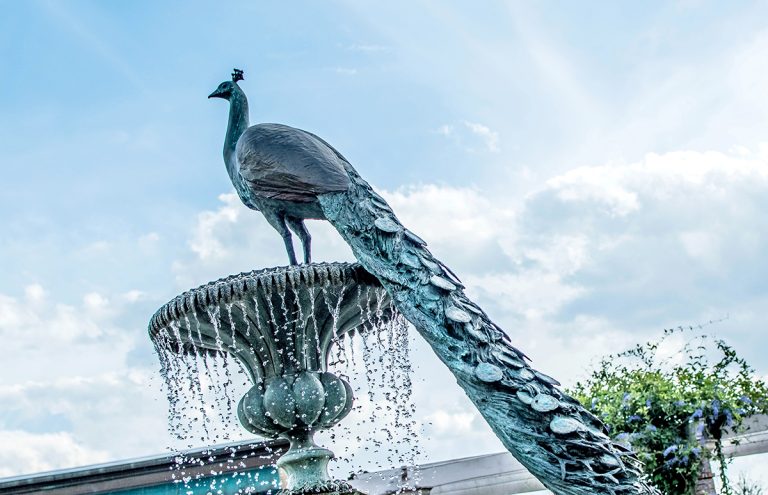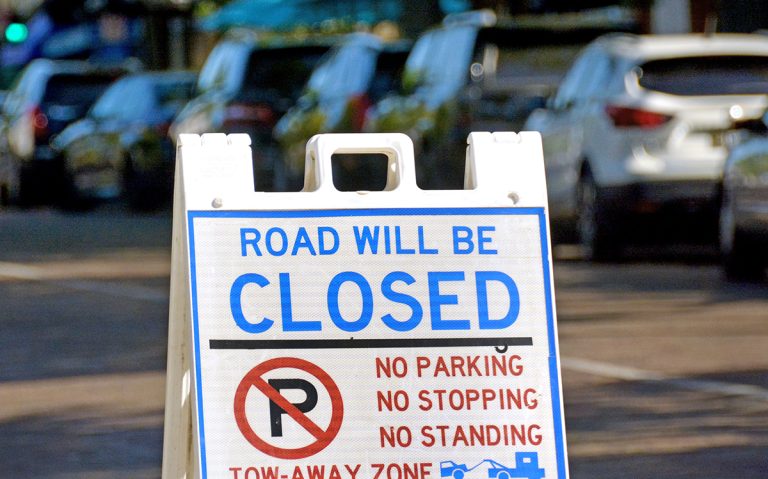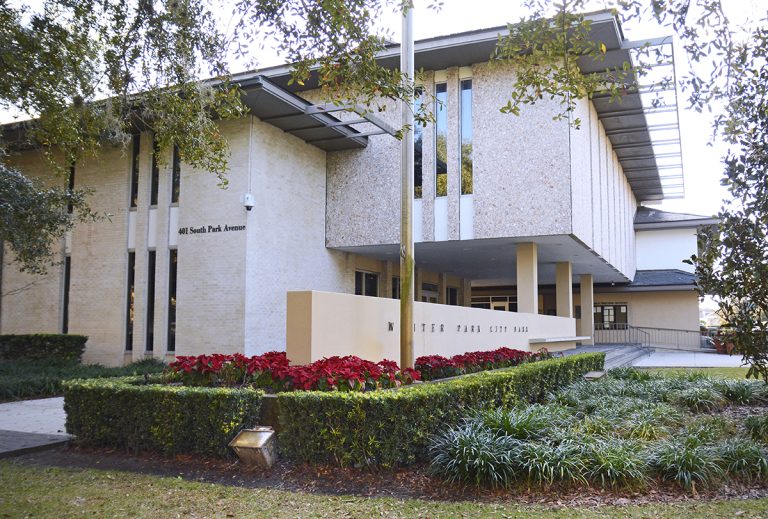Residents and business owners vented frustrations over Winter Park’s ban on gas-powered leaf blowers during a special meeting in Commission Chambers on Thursday, Feb. 1.
The ban was approved in January of 2022 as a means of eliminating the air and noise pollution caused by the landscaping tools. A 30-month pause was grated to allow residents and providers time to switch to electric models with enforcement beginning on July 1, 2024. And a $50 per household rebate program was approved for residents wishing to purchase an electric leaf blower. However, the city has heard from several landscaping companies, stating they were unaware of the ban and that the expense of switching to electric models would be passed on to their clients.
According to city documents, penalties will be served to homeowners in the same manner as shoreline and tree service violations. But the city’s ability to enforce the ordinance remains in question. During the Jan. 10 commission meeting, City Manager Randy Knight said code enforcement would be dispatched when calls alerting the city of violators are received. “We certainly plan to educate for a while and not cite them for a first offense,” he said.
Thursday’s City Commission meeting was called by Mayor Phil Anderson after concerns were heard during an informal discussion with landscaping company representatives. “What we heard from the landscaping community is, ‘we’d like more time,’” Anderson said. “This is not a meeting about adopting or revoking an ordinance. This meeting is about extending the time for compliance.”
Amending a city ordinance would require public notice and two votes at two commission meetings. As a means of streamlining the extension, Commissioner Marty Sullivan suggested a six-month period where notices of noncompliance could be sent without penalties. “It seems to me that, rather than pushing back the implementation date, simply push back the date at which we will enforce the ordinance,” Sullivan said. Under the proposed timeline, enforcement would begin in January of 2025.
Commission’s discussion of the extension began with Vice Mayor Sheila DeCiccio stating that emails from residents requesting an extension were outnumbered “100 to one” by those opposing a protracted timeline. The statement marked the first of several unsolicited comments by members of the audience who opposed the ordinance. Commission discussions and public comments were interrupted by outbursts from residents speaking against the ban, prompting Mayor Anderson to insist that attendees wishing to remain in the audience observe the proper decorum.
Commissioner Kris Cruzada attempted to make the case for regulating nose levels over imposing compliance with the ban as it is written. He was also in favor of allowing residents to make their own decisions on whether to pay for companies that switch to electric equipment. “They will bear that cost with their landscaper versus us trying to promote a certain outcome,” he said. “I don’t want us to avoid being neighborly and being sensitive to each other’s needs.”
Commissioner Todd Weaver commented that he purchased an electric leaf blower for his landscaper and cited the benefits of battery power, stating that two batteries could accommodate the average 90-minute daily usage by landscaping companies. He also saw the attempt to eliminate the air and noise pollution associated with gas-powered blowers as a matter of ensuring “exceptional quality of life,” and voiced his opposition to the extension as it would not be fair to companies that have already made the switch to electric models. “I think five months is enough time to do the research,” he said.
Commissioners heard from 12 members of the community during public comments, five of whom own landscaping businesses and voiced similar concerns over the cost and efficiency of electric units.
Tyler Pontes of Landscape Improvements Inc. said his company’s cost of compliance will run approximately $1,500 per electric blower. “What this will mean for our Winter Park clientele, residents and commercial clients alike, is for them to incur the cost of electrical blowers,” he said.
Roy Levin of Environmental Pest and Lawn Services uses leaf blowers to remove solid fertilizers from brick pavements and driveways, and stated electric blowers are not strong enough to handle the job. “We are trained in how to apply fertilizer and chemicals in the most efficient way,” he said. “But we need the best equipment on the market to get that done.”
“We’re asking hard working folks to put 41 lbs. on their back for 10-plus hours a day in Florida, in the summer,” said Rolling Green Landscape Solutions owner Brian Cobb in reference to electric leaf blower equipment. “My business alone would have to spend an estimated $100,000 on day one to implement this ordinance. We need our customers to know that our prices are going to increase, the level of service they know to expect is going to decrease – we’re going to be able to clean less debris with heavier equipment that doesn’t last as long.”
Residents voiced their views on the matter with many stating that the ordinance was an example of government overreach and authoritarian rule.
“Let the professionals and their customers decide,” said S. Pennsylvania Avenue resident Hattie Bryant. “Electricity is generated by fossil fuels. To achieve the goal of zero emissions we must all get a rake and a broom yet it’s not perfect for big jobs.”
“Listen to the landscapers and listen to the science,” said Hibiscus Avenue resident Gigi Papa. “We’re talking about an ordinance of government overreach that is not necessary for Winter Park residents.”
Jessica Court resident Bill Walker was the only resident to speak in favor of the ordinance. “It’s not about some conspiracy theory,” he said. “It’s about how neighbors can live together in a community.”
Commissioner Weaver took the opportunity to remind the audience of the numerous emails the city has received from residents who are in favor of the ban. “This ordinance isn’t about your individual finances or whether you can tolerate the noise, this is about your neighbors,” he said. “We’re here to represent all of our neighbors because they’re our bosses.”
Commissioner Cruzada reiterated his assertion that residents would be better served by nose regulation than an outright ban. “The majority of emails I have read were more concerned about the decibel level,” he said. “We all have responsibilities in our homes, but we also have to be neighborly.”
Anderson reiterated the motion to place a six-month moratorium on enforcement with the expectation of another meeting with landscapers in April or May, after they have had a chance to do the necessary research and test some electric-powered equipment. The motion passed by a 3-2 vote with Cruzada and Weaver dissenting. With no additional votes necessary, the ordinance will not be on a future commission meeting agenda. But Anderson noted that noise limits could be discussed during commission reports at the next meeting.



